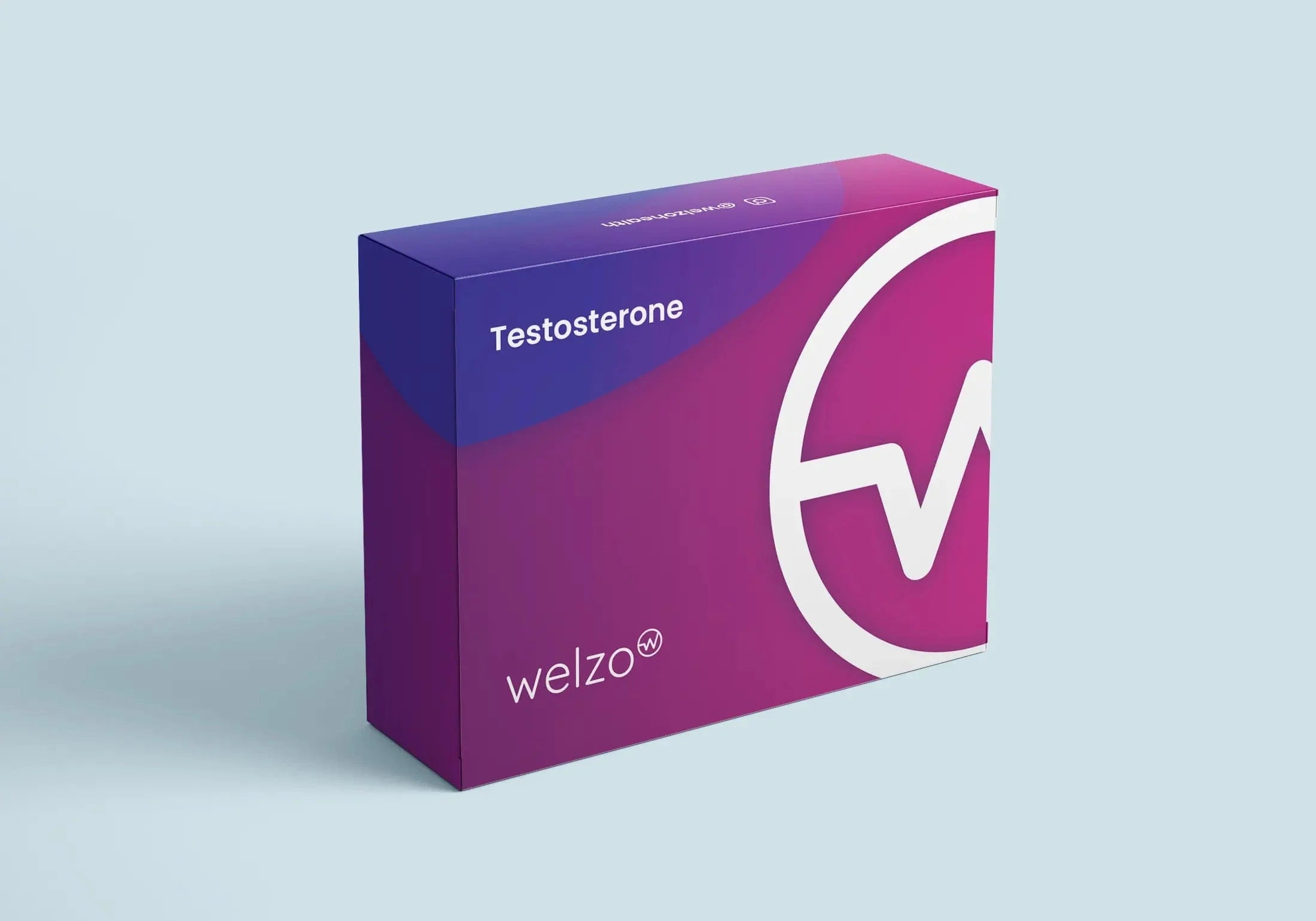The 7 Best Testosterone Supplements that Really Work (Science Backed)


Diving deep into the testosterone boosting world, it's crucial to first understand the mechanism behind how these supplements work. Testosterone boosters are designed to promote the natural production of testosterone within the body, rather than supplying it artificially. They often contain a blend of herbs and micronutrients that influence the body's hormonal balance. For instance, fenugreek and tribulus terrestris are two commonly used ingredients. A recent study by King’s College London revealed an increase in testosterone levels in participants who consumed specific testosterone-boosting supplements over a controlled period, says Dr. Helena Roberts.
Distinguishing between effective and ineffective testosterone supplements is no simple task. Ingredients, dosage, and the presence of other supporting nutrients play a pivotal role. However, one significant differentiator is the presence of clinically researched components. For example, D-aspartic acid has been shown in several studies to increase testosterone, albeit temporarily.
Scientific evidence acts as the bedrock for determining the efficacy of testosterone supplements. Without peer-reviewed, double-blind studies, it's challenging to definitively state the efficiency of any supplement. Besides, relying on anecdotal evidence or manufacturer's claims can be misleading. A report from the University of Cambridge, for instance, highlighted the importance of rigorous testing in ensuring that testosterone boosters do what they claim, says Dr. Liam Thompson.

Buy Testosterone Blood test online here.
Clinical trials are paramount in the testosterone supplement industry. These trials test the safety and effectiveness of products before they reach consumers. A supplement that has undergone rigorous clinical trials, with transparent results, stands out as more reliable and trustworthy
While a supplement's popularity might imply effectiveness, that's not always the case. Sometimes, aggressive marketing tactics can overshadow genuine results. It's always advisable to delve into scientific research and user reviews to gauge a product's true worth.
Yes, testosterone levels can be naturally increased through lifestyle changes like weightlifting, a balanced diet, adequate sleep, and stress management. Foods rich in zinc, vitamin D, and omega-3 fatty acids have been linked to higher testosterone levels.
The timeframe for visible results varies. However, most individuals report changes within 2-12 weeks of consistent usage. It's essential to follow the recommended dosage and consult a healthcare professional throughout the process.
As with any supplement, potential side effects exist. Common ones include acne, sleep apnea, and mood fluctuations. It's pivotal to be aware and immediately report any adverse effects to a healthcare professional.
While both aim to increase testosterone, anabolic steroids introduce synthetic testosterone, whereas boosters promote natural production. Steroids often come with more severe side effects and legal implications.
As men age, testosterone levels naturally decline. Supplements containing fenugreek, D-aspartic acid, and tongkat ali have been recommended for older males. Older males consult with a specialist before starting any supplement regime, suggests Dr. Alan Turner, a gerontologist at Manchester University.
There's a widespread belief that increased testosterone leads to hair loss. However, it's the conversion of testosterone to DHT that might affect hair follicles. Not all supplements cause this conversion, so research is crucial.
Increased testosterone typically leads to a heightened libido. Many users of testosterone boosters report enhanced sexual performance and drive, a sentiment echoed in a study by Glasgow University's Department of Andrology, says Dr. Sarah Mitchell.
Fenugreek, predominantly used in traditional medicine, contains potent compounds like furostanolic saponins, which are believed to enhance testosterone levels. These saponins increase the release of luteinising hormone from the pituitary gland, which then stimulates the testes to produce more testosterone.
Several clinical trials, including a notable one published in the International Journal of Sports Nutrition and Exercise Metabolism, observed that participants consuming fenugreek extract showed significant increases in testosterone levels. Recommended dosages generally range between 500 to 600 mg daily, but as always, consulting a healthcare professional is advised, says Dr. Fiona Clarkson.
D-Aspartic Acid (DAA) is an amino acid regulator of testosterone synthesis. It increases the production of luteinising hormone, which subsequently boosts testosterone production in the testes.
Multiple studies, including one published in the Journal of Reproductive Biology and Endocrinology, found that DAA supplementation led to a temporary increase in testosterone levels. However, prolonged use might not maintain these elevated levels.
Vitamin D, commonly known as the "sunshine vitamin", is produced in the skin in response to sunlight. Research has shown a direct correlation between vitamin D deficiency and low testosterone levels. Adequate levels of vitamin D support overall bone health and play a vital role in testosterone production.
Most experts, including Dr. Adrian Davies from the University of Leeds, recommend an intake of 600 to 800 IU of vitamin D daily. However, this varies based on age, geographic location, and sun exposure.
Tongkat Ali, or Longjack, is a herbal remedy traditionally used in Southeast Asia to improve virility and energy. Modern research has validated its efficacy in raising testosterone levels.
A groundbreaking study in the British Journal of Sports Medicine showed participants receiving Tongkat Ali had higher testosterone levels than those on a placebo. These findings, as well as countless testimonies, have solidified its position as an effective testosterone booster.
Zinc is a vital mineral playing a significant role in numerous enzymatic processes. Specifically, it's crucial for maintaining optimal testosterone levels. A deficiency in zinc can lead to reduced levels of the hormone.
Studies, including one conducted at Wayne State University, found that zinc supplementation could prevent the decline of testosterone levels in athletes. Generally, 10-30mg of zinc daily is recommended for maintaining healthy testosterone levels, as per Dr. Hannah Williams.
Ashwagandha, an adaptogenic herb, primarily helps the body manage stress by reducing cortisol levels. Elevated cortisol can inhibit testosterone production, so managing stress is critical for maintaining healthy testosterone levels.
A study in the Journal of Ethnopharmacology reported that men who consumed ashwagandha consistently experienced a substantial increase in testosterone levels. The recommended dose is typically 300-500 mg daily, taken with meals.
Boron, a trace mineral, impacts the body's use of testosterone by reducing sex hormone-binding globulin (SHBG) levels. Lower SHBG levels result in more free testosterone available in the bloodstream.
While boron is safe when consumed in recommended amounts, overconsumption can lead to toxicity. Based on current research and insights from experts like Dr. Isaac Palmer, a daily intake of 3-10mg of boron is suggested for adults to support healthy testosterone levels.
Venturing into the world of testosterone supplements means being aware of potential side effects. Commonly reported side effects include acne, mood swings, oily skin, increased hair growth, sleep disturbances, and potential liver issues. Additionally, overconsumption can lead to an enlarged prostate or breast tissue swelling in men.
While some individuals experience side effects after consuming testosterone boosters, it's essential to distinguish between correlation and causation. Not all reported side effects are necessarily caused directly by the supplement. For example, experiencing sleep disturbances after starting a booster doesn't mean the supplement caused it unless confirmed by clinical studies or professional observations.
Given the potential side effects, it's paramount to regularly monitor one's health. Regular health check-ups, blood tests, and tracking any physical or mood changes are crucial. "At the first sign of any adverse symptom, consult with a healthcare professional immediately", advised Dr. Rebecca Taylor, a renowned endocrinologist.
John, a 52-year-old from Birmingham, narrates his transformation story, attributing his renewed energy levels and heightened libido to consistent use of testosterone boosters. Similarly, Deepak, a 38-year-old vegan fitness enthusiast from London, credits Tongkat Ali supplements for his impressive muscle gains and improved athletic performance.
It's intriguing to observe how testosterone boosters impact various demographics. Younger users, like Liam, a 28-year-old weightlifter from Bristol, often report quicker muscle gains and improved recovery. In contrast, older users, such as Richard, a 65-year-old retiree from Manchester, highlight improved mood, enhanced cognitive function, and better overall vitality.
Venturing into the world of supplementation, particularly testosterone boosters, without professional guidance can be risky. Thus, consultation with healthcare professionals is non-negotiable. They offer invaluable advice based on individual health profiles, ensuring both safety and effectiveness.
While testosterone boosters can provide remarkable benefits, they aren't miracle pills. A balanced diet, regular exercise, stress management, and adequate sleep are equally critical. "Supplements should complement, not replace, foundational health practices", says Dr. Nathan Philips of University College London








Plus get the inside scoop on our latest content and updates in our monthly newsletter.